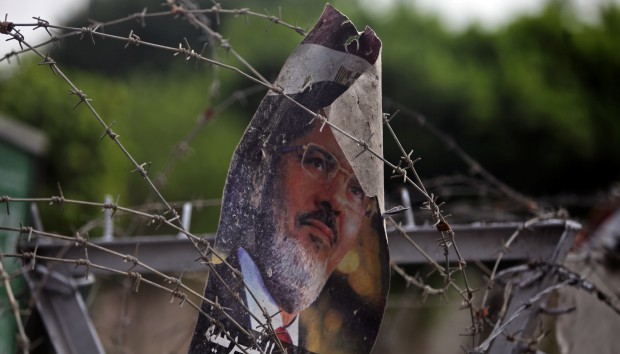“Islamist” models, or the political parties that use religion to serve political purposes, should not be viewed from a domestic perspective. This will not help us understand this globalized phenomenon, which is currently fighting for its life. The latest of such battles took place following the corrective revolution in Egypt, the stronghold of the main group, as the Muslim Brotherhood of Egypt prefer to be called.
Members of the Brotherhood and those who sympathize with the concept of political Islam have flocked from everywhere. In fact, the statement issued in Saudi Arabia by academics and preachers linked to the Brotherhood to express support and to acknowledge the legitimacy of the deposed president is nothing but a sign that Islamists have lost control over the post-Arab Spring political scene.
In fact, the Brotherhood managed to hijack the Arab Spring in different locations, but failed to maintain their control over it for several reasons, the weakest of which is represented by their opponents. The most important reasons are, however, the group’s failure to get rid of the mentality of acting as an underground organization, as well as the organization’s claims of religious legitimacy for its policies, which Gilles Kepel, the French thinker, termed as the ‘dualism of the Prophet and pharaoh.’
Rather than get involved in a fruitless argument of agreeing or disagreeing with what happened in Egypt, let’s take a more comprehensive look at the scene. This argument is important and has been heavily circulated on social networking websites. But arguments about the right description of the corrective revolution and whether it is a smooth coup or not, as well as the military’s interference, death of protesters, use of violence and the shutting down of sectarianism-inciting TV channels, will not help us understand the acute crisis we are currently going through, and which might continue for decades to come.
Perhaps what happened in Egypt marks the eventual downfall of the “Islamist” ideology, which started as an emerging political phenomenon after the failure of the Arab renaissance. The discourse of the Arab nationalist renaissance, which arose in reaction to imperialism, eventually lost its mass appeal. Moreover, Islamist ideology managed to replace the “traditional Islam” represented by major historical schools that are affiliated with traditional sects, as well as the Salafist and Sufist trends. Despite the fact that they were fighting for representation, these various components of Islam did not put social peace in jeopardy or were separated from authority.
“Islamism” has stumbled on several occasions, but its ultimate downfall is yet to come. The use of violence by the Brotherhood, and later on by the supporters of Sayyid Qutb, represented the first obstacle. By targeting tourists and the assassination of Anwar Sadat, the Egyptian jihadist groups came into the spotlight after they broke ranks with the Brotherhood.
Later, Islamism became involved in the political process by representing the opposition in more politically pluralistic countries that allowed the formation of political parties, be they secret or public.
In the Gulf States, however, Islamism remained to represent the silent opposition until it managed to separate itself from the institutions and trends of “traditional Islam,” particularly during the Gulf crisis and the attacks of 9/11. Although 9/11 marked the end of attempts at forcing change by violence in the West, it produced a violent backlash inside the Islamic world—even in countries such as Saudi Arabia.
The end of armed struggle revived hopes for effecting political change and forming opposition especially after the West, particularly the US, was shaken by the activities of Al-Qaeda.
The West tried to contain “Islamism” and considered it as a moderate alternative to Al-Qaeda; the West contained Islamist groups and made them assume authority without taking into account the political consequences ensuing from these groups’ failure to run the state.
Islamist groups, however, acted like dultans, depending on their public support and the cadres that deify them. At this point, it was expected that this will lead to failure and violence and chaos will prevail. Unable to imagine that their dream of “Brotherhood government” has come to an end, the Brotherhood gathered their supporters in Egypt.
However, the Brotherhood’s narrow political program, along with the ability of the unpoliticized masses in the Arab and Islamic worlds to differentiate between religious slogans and political activity on the ground, signaled the ultimate downfall of the idea of “Islamism.”
There is every indication that this downfall will be final, particularly if the Brotherhood continues to sing the same tune of the return of chaos. In fact, this is a distortion of reality and history, a thing we have suffered from for so long.
